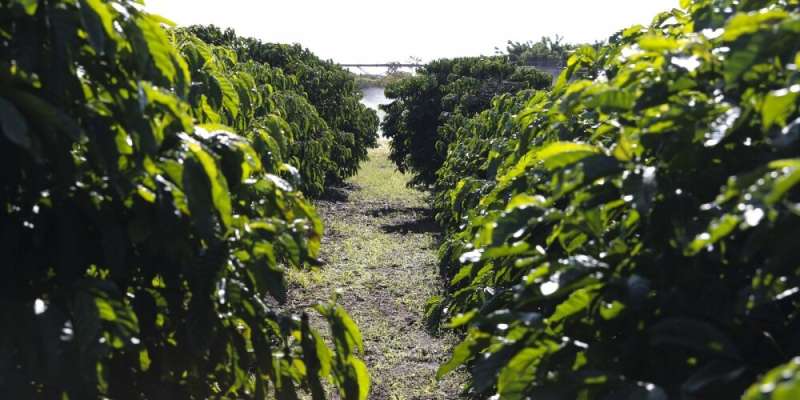Agricultural certification stimulates compliance with environmental legislation by coffee farms in Brazil

Agricultural certification can act as an incentive for coffee growers and other farmers to comply with laws designed to protect the environment, promoting their alignment with the current demands of society and the market, although it does not necessarily contribute to a reduction in deforestation or an increase in natural regeneration of plant cover in rural properties, according to a study conducted in Brazil and reported in an article recently published in the journal Biological Conservation.
The authors of the article are researchers at Brazil’s SOS Mata Atlântica Foundation and the University of São Paulo’s Luiz de Queiroz College of Agriculture (ESALQ-USP) and Institute of Biosciences (IB-USP).
With almost 40% of world production certified, coffee is an example of the growing use of certification seals to show that producers are committed to best practices in terms of sustainability and environmental protection. However, statistical and methodological difficulties have prevented researchers from determining whether agriculture is in fact becoming more sustainable as a result of certification, and exactly how environmental legislation affects biodiversity in the areas concerned.
“We didn’t observe a direct cause-and-effect relationship between certification and deforestation or natural regeneration, but certification can apparently serve as an additional incentive to comply with the legislation, confirming that the synergy has beneficial effects,” said Francisco d’Albertas Gomes de Carvalho, first author of the article and currently a postdoctoral researcher in data science at the International Institute for Sustainability (IIS Rio). At the time of the study, he was affiliated with IB-USP’s Department of Ecology.
“In Brazil, certification can be a worthwhile tool to strengthen compliance with the Native Vegetation Protection Act, also known as the Forest Code, given the lack of interest among landowners and weak enforcement by the government,” he said.
The researchers began by analyzing data from IMAFLORA, the main Brazilian certifier, and SICAR, the national rural environmental register, for 84 municipalities in the states of São Paulo and Minas Gerais, to obtain a list of 537 coffee farms in protected areas classified as Atlantic Rainforest (172 farms) and Cerrado, the savanna-type biome (362 farms). They then defined and calculated a set of characteristics that could influence the probability of certification, including the size of the property, the amount of natural plant cover, and the rate of deforestation or regeneration, in order to arrive at a group of certified farms and uncertified controls.
They chose the first certification as the cutoff date. “We analyzed the changes to the farms in the previous five years to see if the advent of certification had caused variations in factors relating to public policy, such as a reduction in deforestation and an increase in native plant cover,” D’Albertas said. They concluded that it had not, partly because the certified properties analyzed in the study were in “consolidated” agricultural areas, where land use has not changed significantly for a considerable period.
“In these areas, where coffee has been produced for decades, there’s no deforestation to speak of, especially compared with the scale of ongoing deforestation along the agricultural frontier in the Amazon, or in parts of the Cerrado where soybean plantations are expanding,” he said.
Legislation and certification as allies
The researchers next refined the analysis to see if certified properties complied more thoroughly with the environmental legislation, detecting only a general tendency for increased compliance, with no significant difference between certified and uncertified farms.
Because many landowners begin complying with the legislation before applying for certification, the researchers also analyzed land-use changes in the three years prior to certification, finding a considerable increase in native vegetation on certified farms only in areas of Atlantic Rainforest, which mostly complied with the obligation to protect plant cover in Permanent Conservation Areas (APPs). The authors attribute this difference to more efficient law enforcement and higher civil society awareness in the region, as well as more technical expertise in forest restoration.
More information:
Francisco d’Albertas et al, Agricultural certification as a complementary tool for environmental law compliance, Biological Conservation (2022). DOI: 10.1016/j.biocon.2022.109847
Citation:
Agricultural certification stimulates compliance with environmental legislation by coffee farms in Brazil (2023, March 9)
retrieved 9 March 2023
from https://phys.org/news/2023-03-agricultural-certification-compliance-environmental-legislation.html
This document is subject to copyright. Apart from any fair dealing for the purpose of private study or research, no
part may be reproduced without the written permission. The content is provided for information purposes only.
For all the latest Science News Click Here
For the latest news and updates, follow us on Google News.

